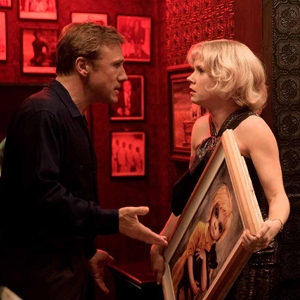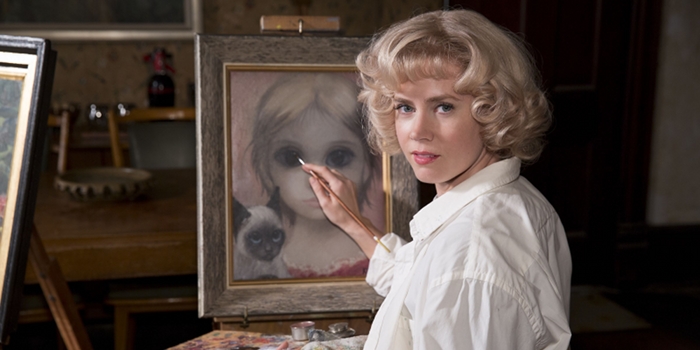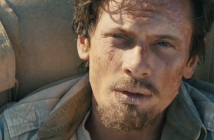Big Eyes (2014)
Director: Amy Adams, Christoph Waltz, Krysten Ritter
Country: Tim Burton
Genre: Drama
Country: USA
Editor’s Notes: Big Eyes is currently out in wide theatrical release.
Director Tim Burton has a filmography that spans nearly 30 years, even more than that when you take his early short films into account, and each of his films however varied their content and subject matter are unarguably his. The end credits for Big Eyes, which chronicles the story of painter Margaret Keane and her husband Walter who took credit for her paintings for many years, tells us that Tim Burton directed the film. Save for a handful of instances where Burton’s style shines through, this is the most conventional film that Burton has ever made, a fact made even more mind-boggling given that Burton teamed with Ed Wood screenwriters Scott Alexander and Larry Karaszewski. Where Ed Wood was an amazing film that not only told a great story but had endless layers to it, Big Eyes has a depth rivaled only by a movie of the week bio pic.
Save for a handful of instances where Burton’s style shines through, this is the most conventional film that Burton has ever made …
The film opens promisingly enough, with Margaret (Amy Adams) leaving her husband and fleeing to the city with her daughter Jane in tow. As voiceover narration reminds us, such a thing was quite controversial in the 1950s. The introduction of a strong female character fighting to support her family in a time oppressive to women is always promising, but any subtleties offered by this setup are quickly shattered by the presence of Walter Keane (Christoph Waltz), a extremely charming painter. In almost no time the two are married. No time is spent ruminating on the possibility that Margaret wed Walter more out of her desire to keep her daughter in her possession and their finances safe. Why flesh out your characters when you care more about hitting your plot beats?

Said plot beats in Big Eyes are undeniably fascinating and ripe more a big screen. An extremely talented, reserved woman creates an artistic movement that captured a nation only to have the credit be taken by her eccentric, ebuliently charming and terrifying controlling husband. She would submit to his manipulations and endorse his lies for years, only to eventually become a Jehovah’s Witness and take her husband to court so that the truth would finally prevail. In their eleven-year journey to bring their story to the big screen, screenwriters Alexander and Karaszewski do little more than recounting a story one could easily Google.
Chief among their missteps is their mistaking subtlety for minimal characterization. This is Margaret’s story, but she never feels more than a tertiary character. Waltz’s dominates every second he is onscreen wether you want him to or not, his scene- chewing so overbearing it’s a wonder he didn’t start eating his actors. So opposite is the way he carries himself from his costar that it reduces their characters to elementary tropes rather than providing a foil for Adams.
Chief among their missteps is their mistaking subtlety for minimal characterization. This is Margaret’s story, but she never feels more than a tertiary character.
The choice have journalist Dick Nolan (Danny Huston) narrate the film only further eradicates any depth to Margaret. We see all the events through his eyes, though he rarely provides anything beyond a basic retelling of events. We rarely get any idea of how Margaret feels about her situation or even the thought process that went into her decisions. In lieu of Nolan giving us such insight, we are subjected to a scene where Margaret tells her dog that she is the true painter which is immediately followed by more redundant storytelling. The movie would have been completely different had Margaret or even her underused best friend DeeAnn (Krysten Ritter) been in charge of narrating.
There is sprinkled throughout Big Eyes the examination of art and it’s relation to both the artist and society, but it is as shallow as everything else in the film. The performances are showy but never engaging, each scene immediately forgotten as soon as the next one starts. Nothing about the material seems to engage Burton in the slightest, making for a film that fails to engage on both an intellectual and stylistic level. Even the music by Lana Del Rey feels like an afterthought, and it is hard to imagine this film being anything different when people examine a great director’s filmography in the years to come.
The performances are showy but never engaging, each scene immediately forgotten as soon as the next one starts. Nothing about the material seems to engage Burton in the slightest, making for a film that fails to engage on both an intellectual and stylistic level.





